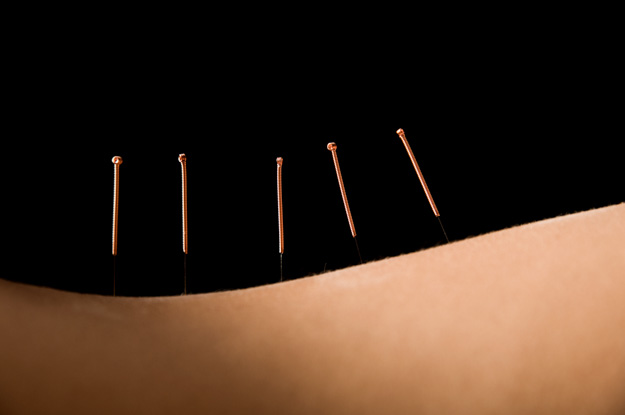Acupuncture alleviates chronic fatigue syndrome (CFS). Research published in the Guangxi Medical Journal finds acupuncture effective for the relief of fatigue, depression, and other symptoms of CFS. Chronic fatigue syndrome is characterized by severe fatigue that does not improve with rest. Additional signs and symptoms include memory loss, cognitive impairment, sore throat, lymph node swelling, musculoskeletal pain, and headaches. Etiologies may include viral infections, stress, and other factors. The clinical trial reveals that a special type of acupuncture has a high total effective rate and a significant total recovery rate for patients with CFS. 
Conventional acupuncture was compared with Qihuan acupuncture. The total effective rate and total recovery rate were significant in both groups. Although both forms were effective, Qihuan acupuncture produced a higher percentage of positive patient outcomes as part of the total effective rate. Conventional acupuncture produced an 80.85% total effective rate and Qihuan acupuncture produced a 95.83% total effective rate.
Qihuan acupuncture produced a superior total recovery rate to conventional acupuncture. Of forty-eight patients receiving Qihuan acupuncture, a total of sixteen patients had a complete recovery. A total recovery was defined as a complete resolution of all symptoms and the patients were able to return to a normal social and work life. Of forty-seven patients receiving conventional acupuncture, ten had a total recovery. As a result of these findings, Qihuan acupuncture is regarded as an important method for the treatment of CFS.
Qihuan acupuncture involves several Chinese medicine principles. Qihuan acupuncture benefits the Zang-Fu organs. In addition, Qihuan acupuncture benefits qi, alleviates depression, restores the liver, promotes blood circulation, and relieves heat and toxins. According to Chinese medicine principles, CFS affects many Zang-Fu organs including the spleen, liver, and kidneys. As a result, the effectiveness of Qihuan acupuncture is well-suited for this type of treatment.
Qihuan acupuncture is the application of eight acupuncture needles in a 0.5 inch radius around the navel at 45 degree angles forming a complete circle. A different way to visualize the acupoint locations is at 12, 3, 6, and 9 o’clock to CV8 (Shenque) plus the areas halfway between each clock designation for a total of eight directions. Needle depth maximum was set to 0.8 inches and needle retention time was thirty minutes per acupuncture session.
The filiform acupuncture needles used in the Qihuan and conventional acupuncture groups were 0.25 x 25 mm. Acupuncture was administered once every three days for a total of ten acupuncture treatments comprising once course of care. A three day break from care spaced courses of care from each other. Two courses of care (i.e. twenty acupuncture treatments) were administered. 
The conventional acupuncture group received needling at the following acupoints:
- Pishuu, BL20
- Ganshu, BL18
- Shenshu, BL23
- Shanzhong, CV17
- Zusanli, ST36
- Guanyuan, CV4
- Baihui, DU20
Supplementary acupuncture points were added based on differential diagnostics. For spleen qi deficiency, Taibai (SP3) and Sanyinjiao (SP6) were added. For insomnia, Shenmen (HT7) and Zhaohai (KD6) were added. For memory impairment, Yintang and Shuigou (DU26) were added. For liver qi stagnation, Taichong (LV3) and Neiguan (PC6) were added. Mild reinforcing and reducing acupuncture techniques were applied to the acupoints.
Qihuan acupuncture and conventional acupuncture achieved significant total effective rates. Qihuan acupuncture achieved optimal results with a 95.83% total effective rate. Notably, Qihuan acupuncture achieved superior patient outcomes for the total recovery rate. As a result, Qihuan acupuncture is recommended for patients with CFS.
References:
Li MK, Mo QL, He XF, Huang JJ, Zeng JR, Song N, Li J & Han HT. (2014). Effect of Acupuncture in Qi Huang Point of Chuang Medicine on Treatment of 48 Cases of Chronic Fatigue Syndrome. Guangxi Medical Journal. 36(12).
Yang JX. (1999). Chronic Fatigue Syndrome. Shanghai Journal of Disease Prevention. 11(10): 435-436.


